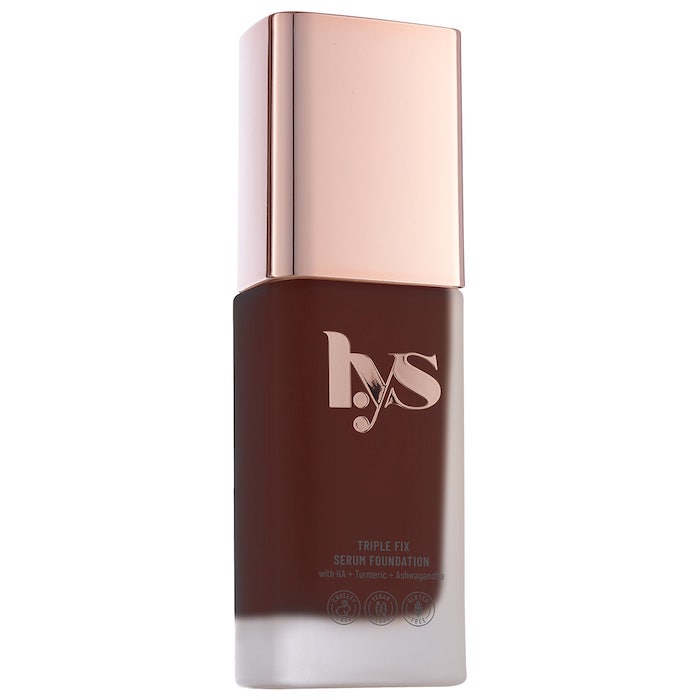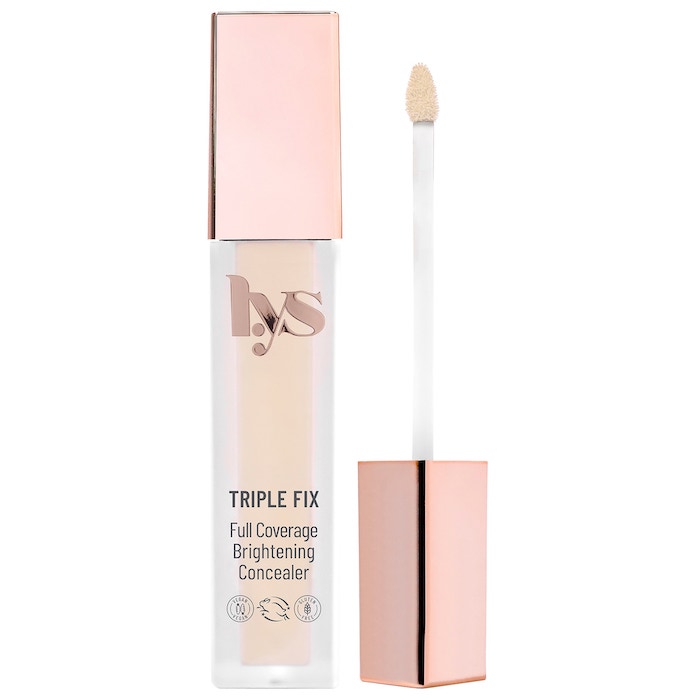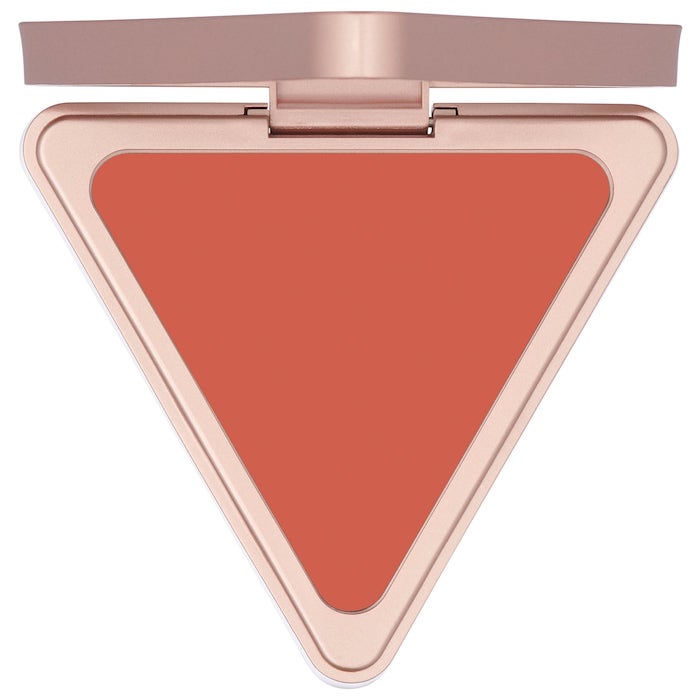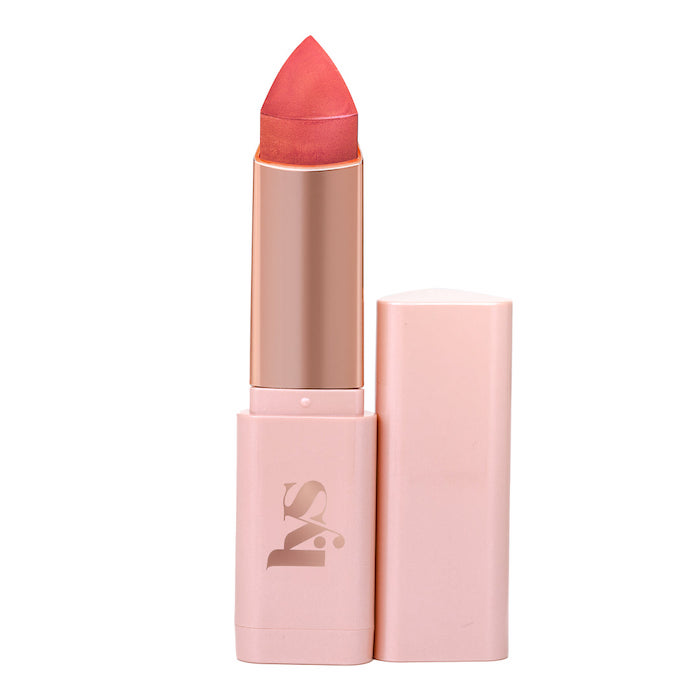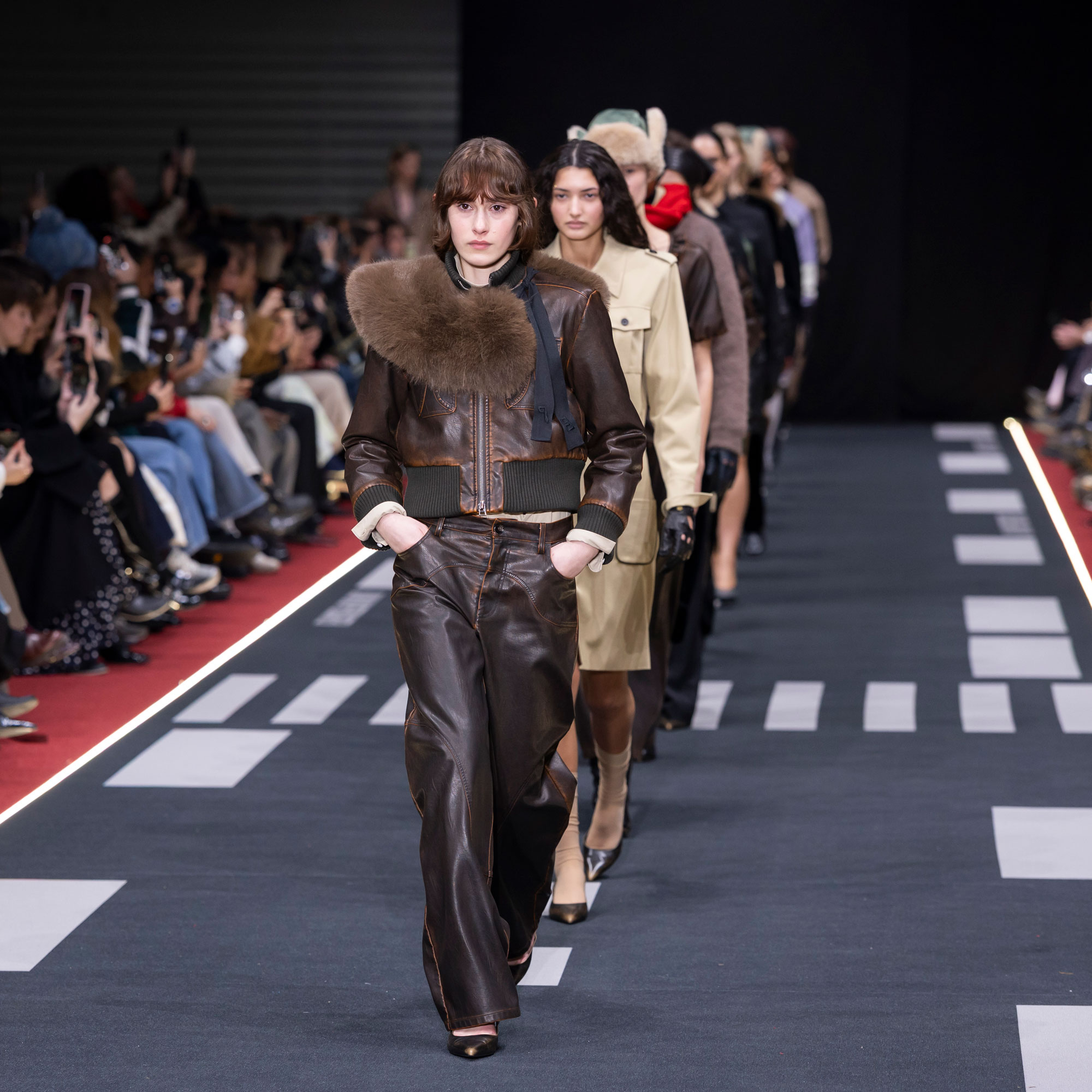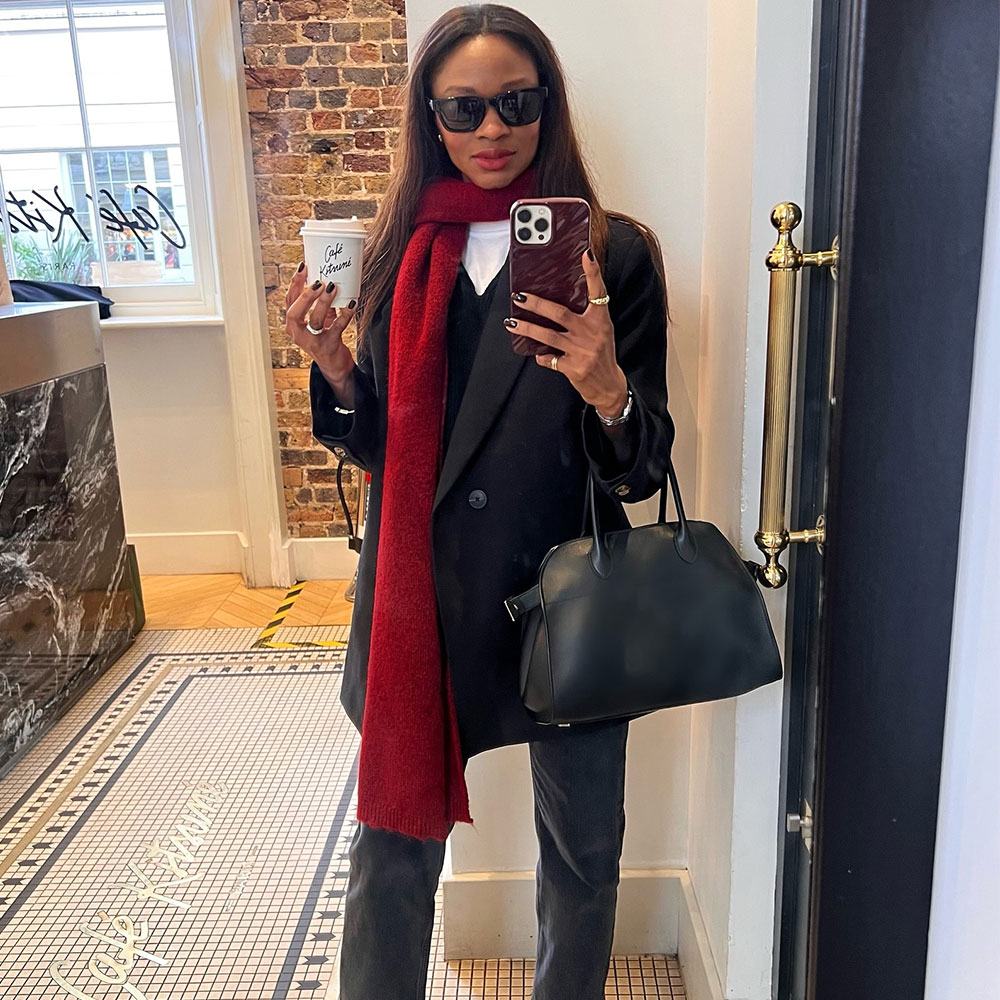Tisha Thompson on Creating Makeup to Help Us "Love Who We Are, Unapologetically"

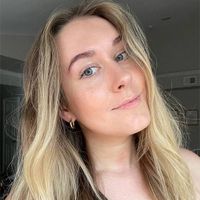
With a firm handshake, say hello to Business of Beauty—an exclusive, inside look at the incomparable journeys of entrepreneurs of color in the beauty industry. This series is anything but business as usual. It's a raw, honest look at the unique and often overlooked challenges that people of color face when starting their own beauty brands. Each founder will reveal the biggest hurdles they've overcome, their internal struggles, and their deepest thoughts about what needs to change in the beauty industry (and the world, really) to make it a more inclusive space for everyone. This time around, we're getting to know Tisha Thompson, the founder of LYS Beauty. As a former makeup artist with 20+ years of experience in the beauty industry, Thompson knows what it takes to create a truly inclusive and welcoming space for all. Read all about her journey below.
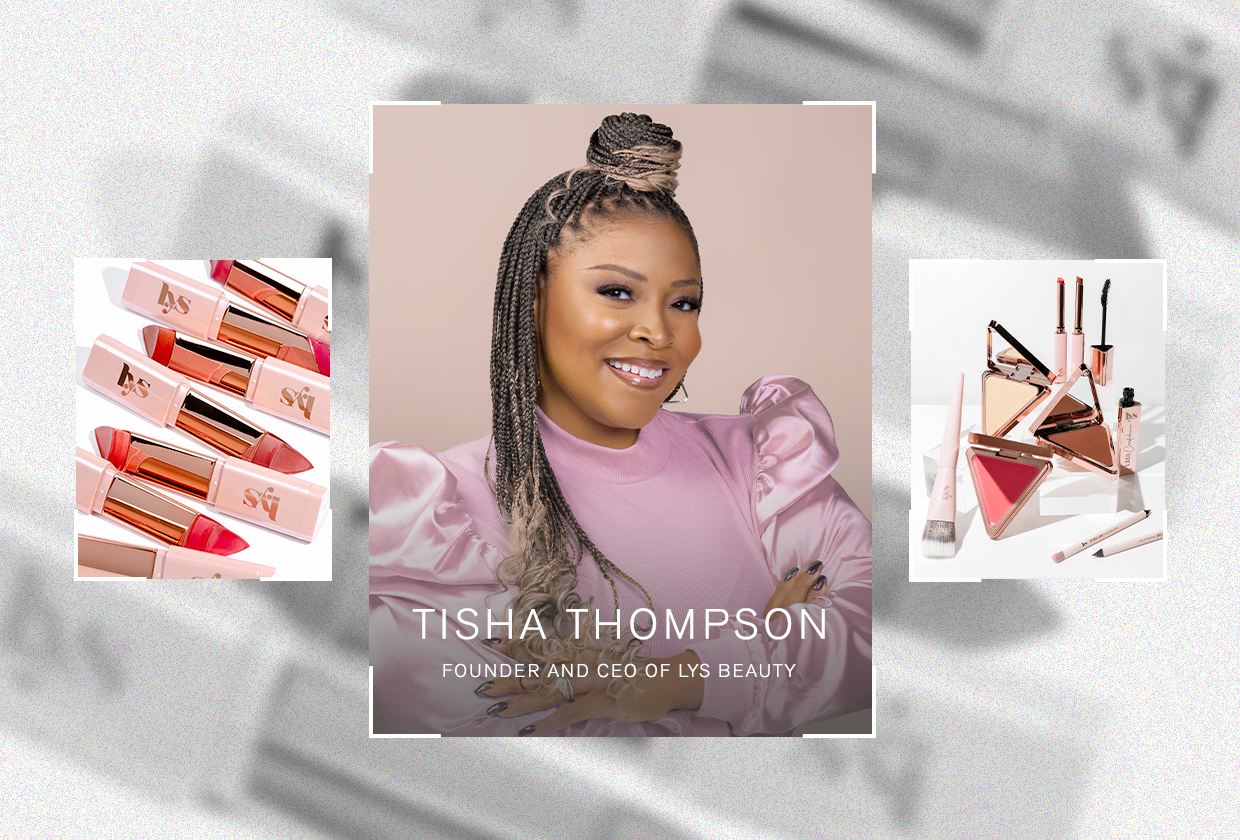
Tisha Thompson always dreamed of working in the beauty industry. She started out her career as an accountant for a beauty brand, working as a professional makeup artist on the side. Soon enough, she transferred to the marketing department. From there, she worked her way up the ladder, eventually becoming an executive and handling everything from scaling the business to managing product development, overseeing sales, and more.
During this time, Thompson saw the problems and pitfalls associated with the beauty industry firsthand. She was frustrated with the general lack of representation for people who look like her, and she dreamed of creating her own brand—one that would foster diversity and inclusion and set a new standard for women and their relationship with makeup. In 2021, she launched LYS Beauty (an acronym for "love yourself"), a passion project in which she combined her expertise as a business executive and as a makeup artist to create something magical. Thompson is truly leading the charge in the beauty industry, setting a new, inclusive standard and encouraging people everywhere to love who they are unapologetically. Read my interview with her below.
First, can you tell me about your background and walk me through your experience in the beauty industry?
I started in the industry as a makeup artist 20+ years ago. I started working at a beauty counter. I worked at MAC Cosmetics. I did a lot of freelance music videos and photo shoots, but I got into the love of beauty as a child. I traveled a lot as a military brat and found myself always having to make new friends and fit in new circles. I found camaraderie in braiding the other girls' hair during gym class and doing everybody's makeup for the dances and stuff like that. It was a bonding thing I did with friends. I always struggled and felt like I didn't fit in, so I also looked to beauty for that.
Both my parents being military, they didn't love the idea of a makeup artist being my career. That's really what I wanted to do, but they had this dream and vision for me of being the first to go to college in my family. They just didn't see the whole vision at the time. It was like, "We don't want you to be a starving artist and sleep on the couch. Go get a real job." I went to college, and I ended up doing finance. My full-time job out of school was being a staff accountant. On the weekends, as my side hustle, I was working as a makeup artist and pursuing my passion and love for beauty.
I landed a cool opportunity to do accounting for a makeup company. While I was there for 18 months, I stalked them every day. "I'm a makeup artist. I should be in the marketing department. How can I transfer?" One day, a makeup artist didn't show up for an event, and I slotted in. Then a position opened up to be a marketing coordinator. I took a demotion, and the rest is history.
I built my career from the ground up by getting coffee, driving around the country, opening new retail stores, and helping with market research and product development. I started as a marketing coordinator and ended up pretty much as a GM running an entire brand and taking it around the globe. I managed product development, social media, marketing, and sales, so I got my master's—I always say my PhD. [It's] not a real one, but with all the drama I went through, I feel like I should get something [laughs]. It was a true boot camp in my career of the inner workings of the beauty industry both as a consumer, a makeup artist, and an executive. It gave me this really cool lens to see the industry from a whole different perspective. I cued in the things that frustrated me about the space and said, "I want to do something different." That was the catalyst to launch LYS.
Thank you for taking me through that. That's the perfect segue. I want to know more about the genesis of LYS. What was the space it was designed to fill, and what was your initial inspiration?
I had an issue that stemmed from the way beauty made me feel when I was younger. … It was always feeling like I was trying to fit in, trying to change who I was, trying to emulate others.
I always felt like it would be great if I loved who I was and there was a promotion of appreciating who you are but then using makeup as a way to feel happiness and creativity and use it as an accessory or a way to express yourself—not change yourself. It was something I'd always identified in the space. I was like, "Why do I get so frustrated when I see that ad? What about it frustrates me? When I'm at a photo shoot and I'm directing it, what are the things that I don't like? Oh, every model is skinny, and everyone has light skin." I'm doing and perpetuating these things that the industry almost requires because it's the standard that was established as beautiful. I didn't like that. I didn't like perpetuating it. I didn't like having to play in that box. I wanted to change it.
LYS stands for "love yourself." I wanted to start from a baseline of we are going to love who we are, unapologetically. Period. We're also going to have a healthy relationship with beauty. I wanted to be a catalyst for diversifying and adding depth to the space so that everyone felt like they belonged. That was the reason I decided to create the brand. It was this love letter to myself, reminding me you are worthy. You are enough. You are beautiful. I knew if I was feeling this way so many other people were also feeling this way.
Creating a level of representation is so important. [LYS Beauty] is for everyone, from the fairest of the fair to the deepest of the deep, thin, plus-size. Everybody has a moment where they don't feel like they're being accepted or included. Let's create a safe space for anyone who feels unseen. I was late in my 20s before I saw anybody in beauty that looked like me. I was like, "Oh my gosh, girls should be way younger when they can see and experience representation and value and self-worth. It shouldn't be that late in life." Creating an environment where young girls can have that messaging and reminder was awesome.
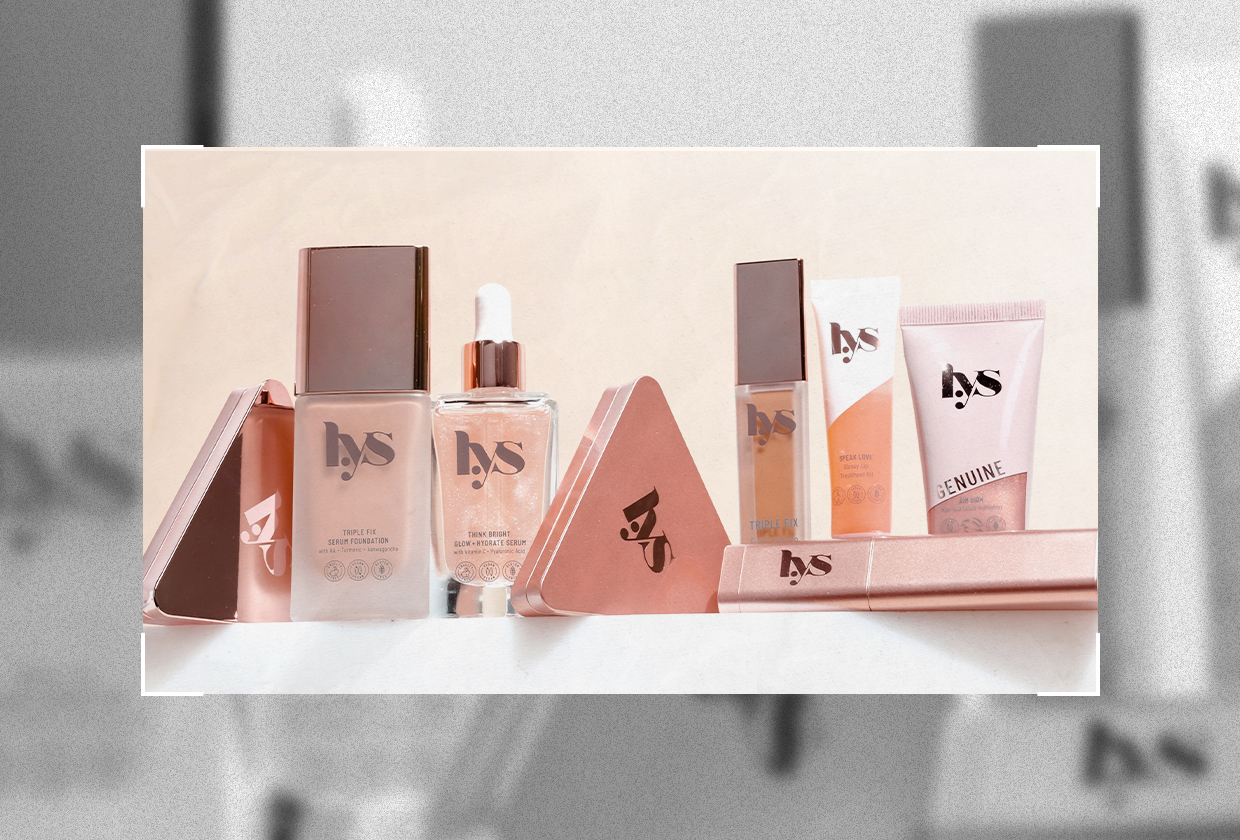
That's so true. Even as a beauty editor, a lot of my initial experiences with beauty weren't empowering. In the early to mid-2000s, I couldn't leave the house without mascara—not because it empowered me but because I felt like I needed it to look beautiful. It wasn't about accentuating. It was about disguising, covering, changing. That was the underlying theme for a long time.
Yes, I agree.
I think it's probably pretty universal—just growing up, being a woman, and having that standard of beauty being set before you.
Absolutely. I agree.
As a woman of color, were there any unique challenges or roadblocks you faced when launching and growing your brand?
It was a dream and a vision I had in 2017. Between 2017 and 2019, it was festering. I knew I wanted to do something, but it was a dream on the shelf. Having run a beauty brand and being in the industry for so long, I know how expensive it is. It's a very low barrier to entry but is extremely hard to scale and very costly. I never felt like I'd be able to do it from a funding perspective. I didn't come from money. I didn't have any rich relatives to call on. I didn't know that I would have the resources to do it. I felt like I was doing the next best thing, running someone else's brand.
I had an unfortunate situation happen in 2019. I lost my dad to a massive heart attack. It was one of those pivotal moments in my career and in my life that shook me but gave me instant access to fueling a dream that me and my dad had always talked about. Even though in the beginning he didn't see the vision, once he started to see me flourish in my career, fly all over the world, see all these beautiful places, and be in these rooms with people I idolized, it was this proud moment. He might have not seen the vision because the representation wasn't there. They didn't have representation of business owners in our family, so they couldn't see through the weeds and the trees to think, "There's an opportunity, and she can do this." After showing them—knocking those trees down and blazing that path—they jumped on that bandwagon and were the biggest supporters ever.
I took my inheritance and started the company because I wanted to keep that hope and dream alive and create generational wealth through it. I was like, "That's what [my dad] would have told me to do if he was able to help in any way." That, for me, was the start. It wasn't enough, but it was enough to get started. I took the leap and reached out to a couple of retailers. I emailed Sephora, and they were like, "We love the idea, and let's do it." I had renderings, but I didn't have final anything. It was an idea. It was a vision.
I think the biggest, hardest thing as a woman of color is funding, which is that first thing. Having something to get started was critical. … Access to retailers and shelf space and being able to get your product in-store is another challenge. Amazingly, Sephora had just signed the Fifteen Percent Pledge. I feel like timing in life is everything, and I pitched to them at the perfect time. They were looking for cool ideas and innovative brands that could fill shelf space, and they took a gamble on me. I think it was my experience that helped them make that decision. They said, "Let's hold hands together and make this happen."
The beauty industry is competitive. It's such a saturated market with celebrity brands and everything. Having that vision is so intrinsic and important because you're not just another person launching a brand. You have the practical knowledge and experience to back that up.
One-hundred percent. The beauty industry is hard!
Speaking of that practical knowledge and experience, I feel like that lends itself well to product development and formulation. How did your experience inform that?
You hit the nail on the head when you said the beauty industry is competitive and crowded. One of the biggest things I wanted to do when I launched a brand was to be instantly disruptive and break through the noise. Most startups don't launch a foundation. They usually start with a lip product or an eye product or maybe a cheek product. Foundation is a very expensive first product to launch. It requires a lot of shades, so the capital upfront is quite costly.
I was like, "That's what we're going to do because it's going to shake up the industry." Also, when you do a foundation, people listen. For whatever reason, it can fizzle or not, but when you launch a foundation, it breaks through the noise. It gets people talking.
We came out guns blazing—35 shades, really diverse—from really fair shades to extremely deep shades. It's an amazing formula. People were like, "Who is this brand? What is this product? What is this triangle shape?" We got people's attention right out of the gate, and now, people are anticipating and looking for what's next.
I know both sides. I know as a makeup artist, but I also know as a marketer what's important. As a marketer, I know you have to break through, but as a makeup artist, I know it has to perform. It's one thing to be loud and noisy, but if it's not great, they're going to try it one time and move on, and you'll fizzle out. If you come with that cool marketing stuff but back it up with quality and performance and products that work, it's like, "Holy smoke." That's what we did. We came to the table with incredible products that really perform. … When you use them, you're like, "I didn't want to like this, but I love it."
We take a little longer to launch products. We didn't launch very many products, and we still don't have a full product line three years later, but we're doing it slowly, meticulously, and steadily. We're doing it with products people will reach for every day when they're doing their makeup. That's the goal. We want to be the tried-and-true brand in people's makeup bags.
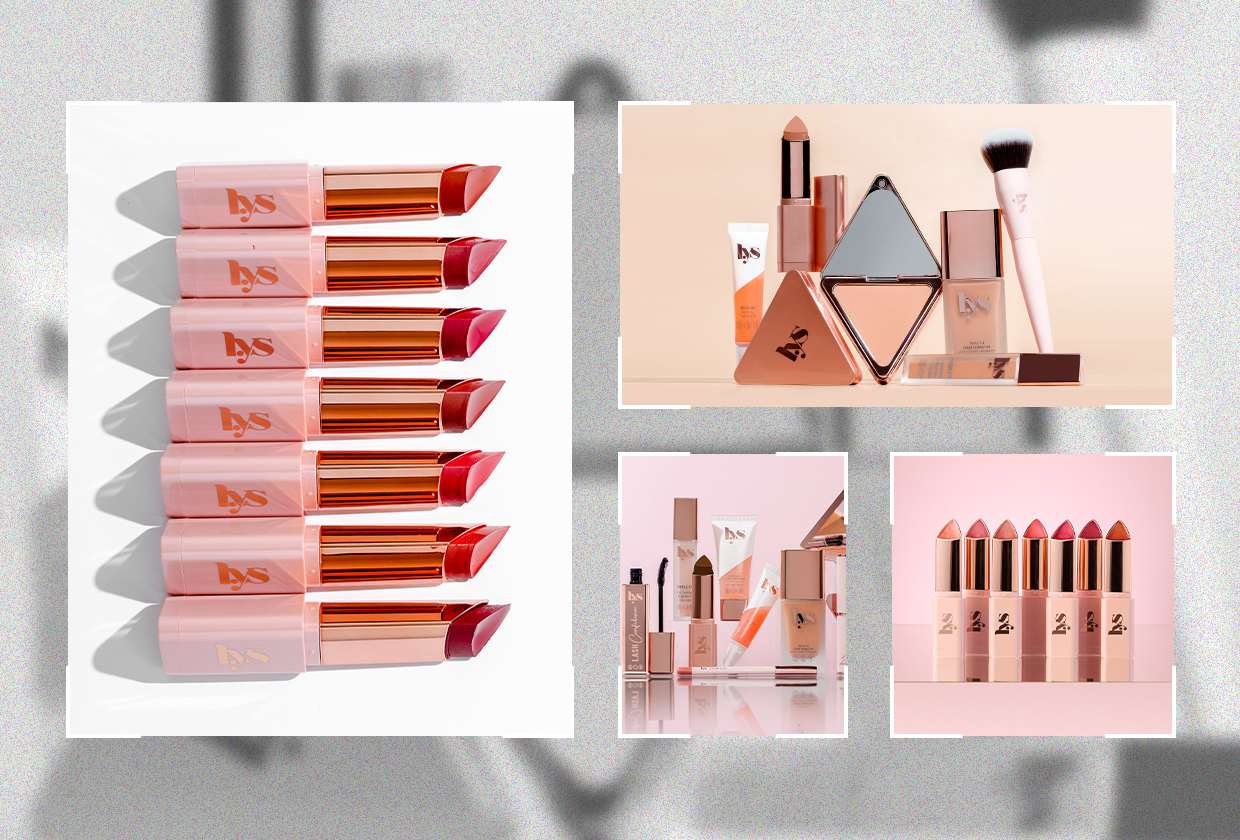
Yes, the makeup-bag staple! Speaking of the diverse foundation shade range, what was it like creating the 35 shades, editing them down to what was necessary to make it inclusive, and perfecting the undertones? That seems like such an overwhelming task.
I developed nearly 20 complexion products in my career, so I've had a lot of experience and time in the lab working with formulators, understanding pigments and how they lay on skin. … Being a makeup artist is helpful as well. It's also my passion. Complexion is what I love doing the most. It's also what frustrates me the most with the beauty industry. Seeing a brand have amazing marketing and packaging… And then they launch a foundation, and they stop at my color. I'm not very dark. It's very disappointing. Or you have dark shades, but they're all yellow, or they're all gray, or they're too red. We're not keeping into account that everyone has different undertones. You'll usually see that work has been put in for fair skin tones—you'll have the pinks, the peach, the neutral, the golden, and the olive shades—but then you get to the deep shades, and everybody gets one undertone. Black people have undertones too. We have pink, we have neutral, and we have golden. You don't usually see that work being translated through the whole line.
Our complexion products are color coded accordingly. Every brand does it differently, but sometimes, you'll just see a number system. We add a letter to our number system so it delineates what your undertone is. If it has a P, that's for a pink undertone. If it has a G, it's for golden. If it has N, it's for a neutral undertone. We make sure that people know we're catering to different undertones in our foundation strategy.
I don't take it for granted that people struggle with that. People have asked me before, "How can we fix and improve?" We have to have the right advisors. We have to make sure we're using the right models, and we need to have diverse people on our team. A lot of times, labs will only have people with fair complexions working in the lab or at the factories, so it's like, "How can we make sure that diverse and deep skin types are being tested and can use it?" That's why I've gone in or taken somebody that has a deeper skin tone to the lab—let's show the chemists firsthand [that] this is how it's working on the skin, and this is how it lays down. We'll do virtual calls … anything we can do to help educate and show how it reacts on different skin tones. It requires that conversation and hand-holding. I think sometimes brands don't have that infrastructure built in. They might have a one-noted approach, and it ends up showing when you launch products.
It's great we're getting to a point where there's nuance and diversity in makeup products. I can't tell you how many articles I've written about how to find the right foundation shade with the help of a makeup artist. It was so hard! Now, I feel like it's getting easier, and that's wonderful. You don't want to have a professional makeup artist on hand just to pick out the correct foundation shade, right?
Totally.
LYS Beauty is Sephora's first Black-owned clean makeup brand. I would love to know what "clean" means to you and what the brand's ethos is surrounding that.
For me, clean is about being conscious and making sure that we use the safest ingredients possible. The majority of my career has been in clean beauty. I came into it with all of my education, learning, and knowledge of only really formulating clean. For me, there was no other way to do it. I also have very sensitive skin and break out easily, so I also wanted to make sure any of those potentially harmful or irritating ingredients weren't introduced when I launched my own brand.
It's what I knew, but also, knowing that people of color are two times more likely to be exposed to harmful ingredients in their products, it was important to me that I create a brand. I knew I wanted it to be accessible from a price-point perspective and that it had to be rooted in clean.
We leave out potentially harmful ingredients that are very common to see in beauty, like fragrance, PEGs, and talc. Parabens not so much anymore, but there are still some beauty brands using them. They're things we want to take out of the conversation because some conversations and studies show they may be potentially irritating and harmful. We have a huge no-no list, but we go a step further. We want to add skincare to our products so that they're adding long-term benefits. You're in your makeup longer than you're not, so we use ingredients like hyaluronic acid and niacinamide, fruit extracts, green tea, chia seeds, jojoba, shea butter—so many amazing ingredients in our formulas to nourish the skin as well. It's not only a conversation about what we take out. I think that needs to be table stakes for the entire industry, but I know that's not the case. What are the added ingredients and benefits and experiential things you're using to improve skin health over time?
I also wanted to make it accessible. I know there's a lot of clean beauty now, but it's not always at a price point where people can experience it and enjoy it. It's not always in a pigmented or a diverse SKU base either. We wanted to hit all of those in one fell swoop.
Absolutely. What does a truly diverse and inclusive beauty industry look like? Do you think we've made improvements in this area within the past few years, and are you hopeful for more progress?
We've definitely made progress, which is really good. We have a lot to do, but I love that we can see some notable improvements and changes, which is really exciting. What I would like to see and where we will truly be diverse is when you can go into a store… I can go into a store, and someone deeper than me can go into a store, and we can go shopping together, and every one of us can leave the store with products to take home. One of us doesn't need to go order their shade online. To me, that would be a really good experience.
I might be able to find something, but it may not be from a brand that has taken the steps to formulate clean. That's where I would like to see this industry go. From an online experience, I think it's getting pretty good. I'd like to see more diversity in shade and model size and type as we all evolve there, but in-store is really where I think there's a huge opportunity still. I get it—there's not a lot of shelf space. … I get the challenge retailers have. I just think there has to be a continued push for diversity by bringing brands like us in. I see the forward progress and movement, and I'm looking forward to seeing that expand and evolve.
I agree. My last question for you is this: As a brand that's built on loving oneself, being inclusive, and giving visibility to people who might not feel seen, what's the number one thing that you hope, wish, and dream that your customers are taking away from LYS Beauty?
I made the products in a triangle shape for that exact, amazing question. [The triangle] is the delta symbol, and it means "change." It's designed to spark you and remind you that you have the power to change how you feel about, talk about, and treat yourself—that remembrance of "I have the ability to treat myself better." … If we're nicer to ourselves, we'll naturally be nicer to other people. If we feel better about ourselves and love ourselves, we will feel better about and love others more. That's the biggest takeaway. We want to remind people to live their lives that way, and everything else will take care of itself.
Shop LYS Beauty Products
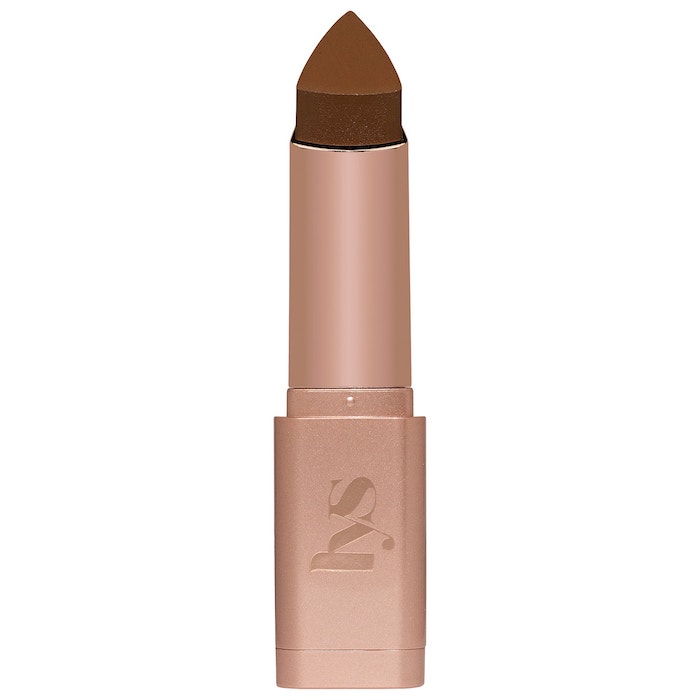
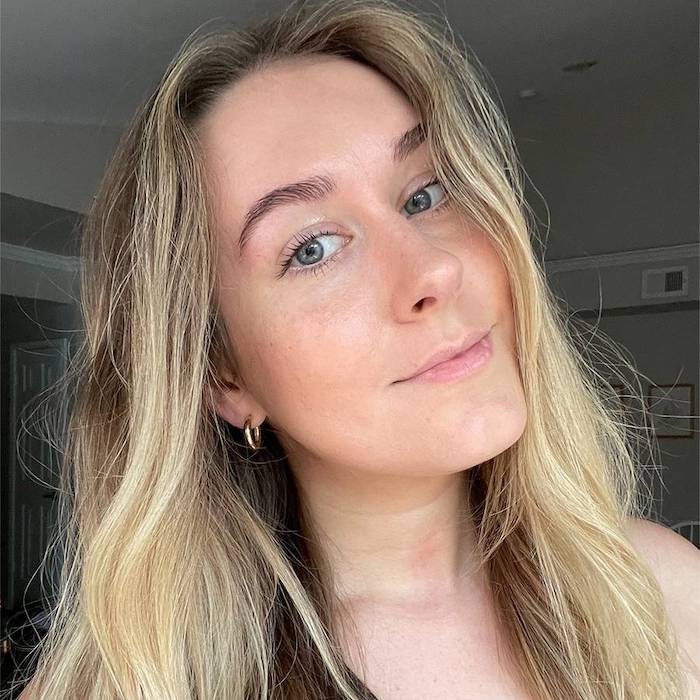
Kaitlyn McLintock is a Beauty Editor at Who What Wear. She has 10 years of experience in the editorial industry, having previously written for other industry-leading publications, like Byrdie, InStyle, The Zoe Report, Bustle, and others. She covers all things beauty and wellness-related, but she has a special passion for creating skincare content (whether that's writing about an innovative in-office treatment, researching the benefits of a certain ingredient, or testing the latest and greatest at-home skin device). Having lived in Los Angeles, California, and Austin, Texas, she has since relocated back to her home state, Michigan. When she's not writing, researching, or testing beauty products, she's working through an ever-growing book collection or swimming in the Great Lakes.
-
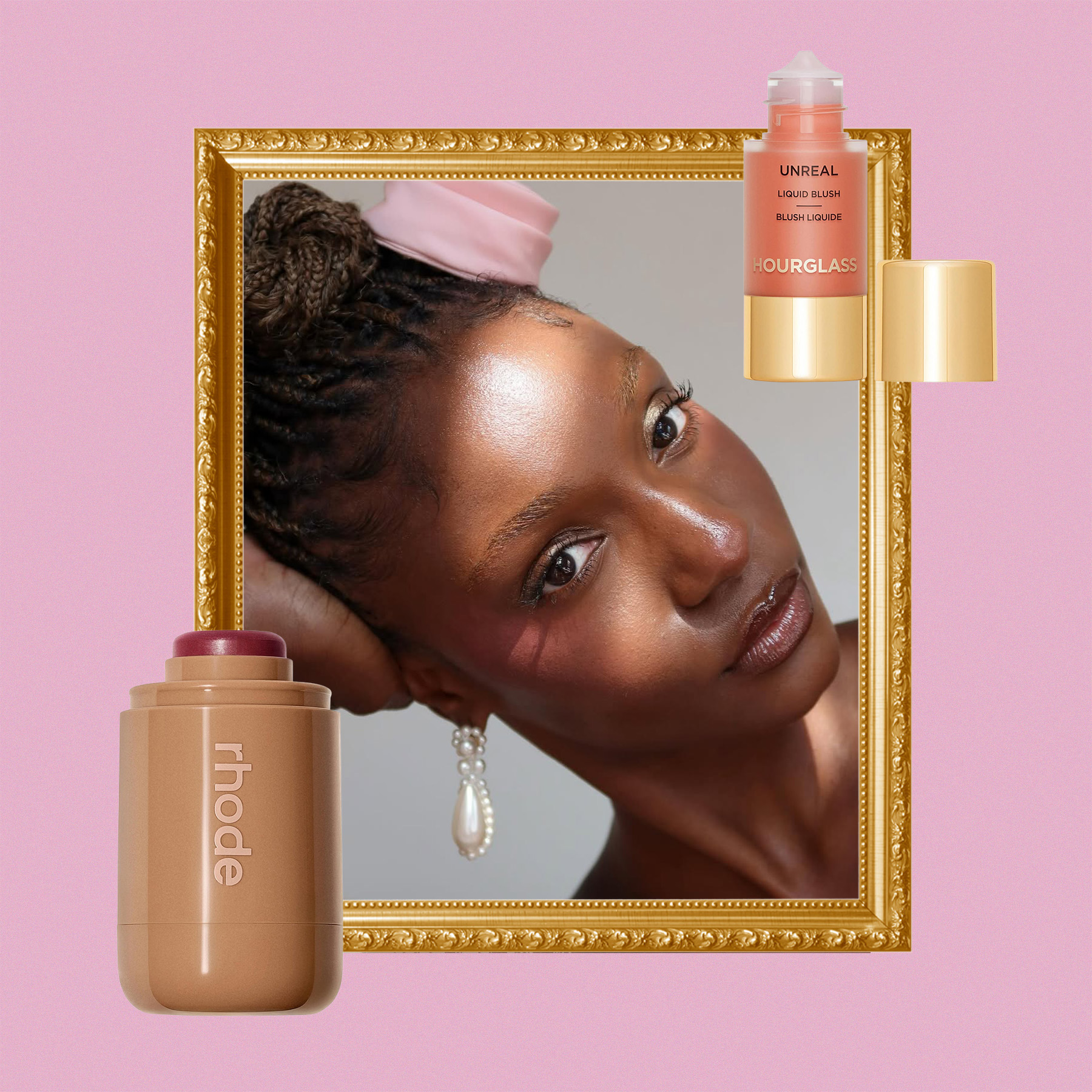 This Blush Trend Pairs Best With a Vintage Nightgown and Secret Garden—How to Create It in 3 Steps
This Blush Trend Pairs Best With a Vintage Nightgown and Secret Garden—How to Create It in 3 StepsIt doesn't get more romantic than this.
-
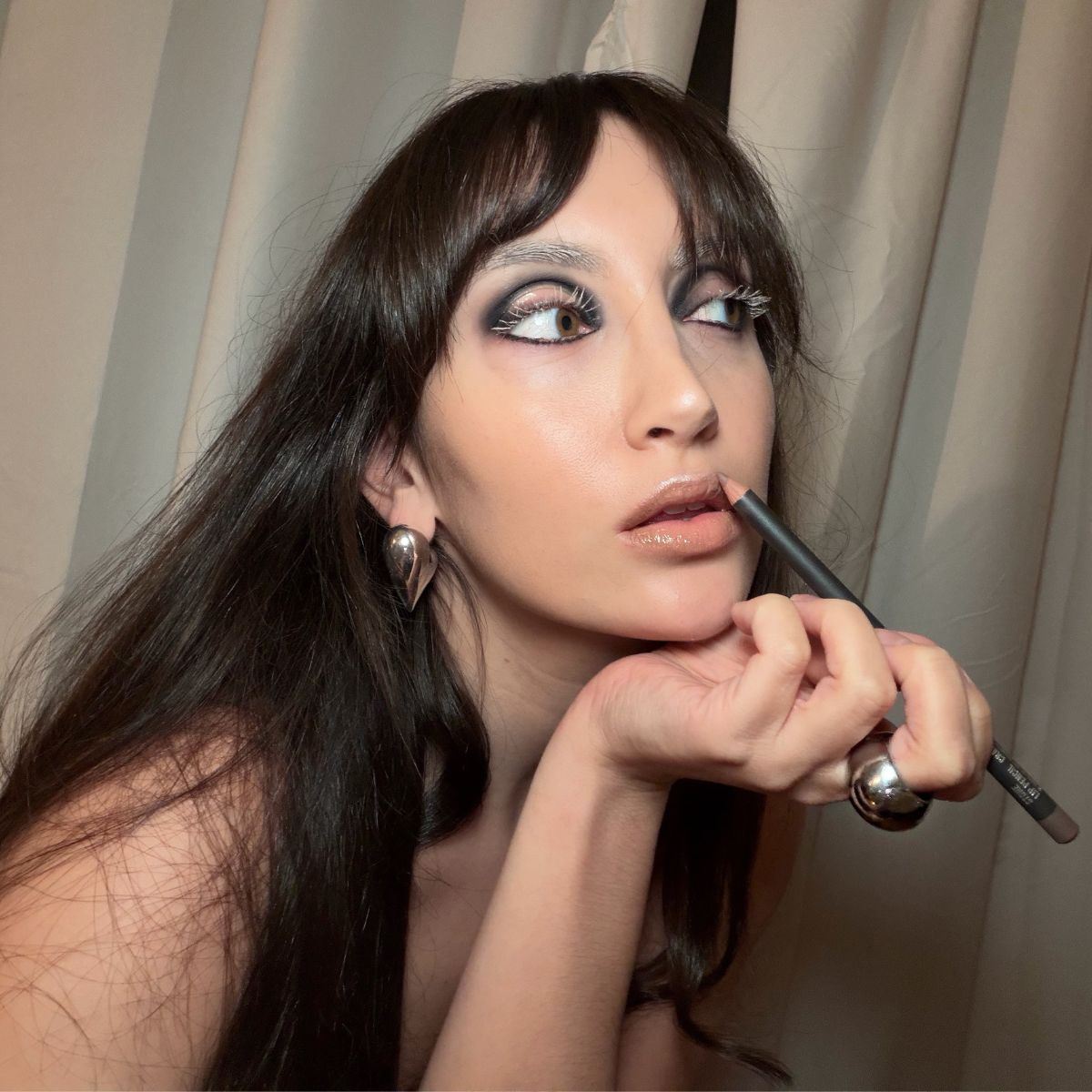 Bleached Brows Are Ultra-Viral (and Quite Permanent), But This 2-Second Hack Is Totally Washable
Bleached Brows Are Ultra-Viral (and Quite Permanent), But This 2-Second Hack Is Totally WashableZendaya and Jenna Ortega are among the style set driving this alternative trend.
-
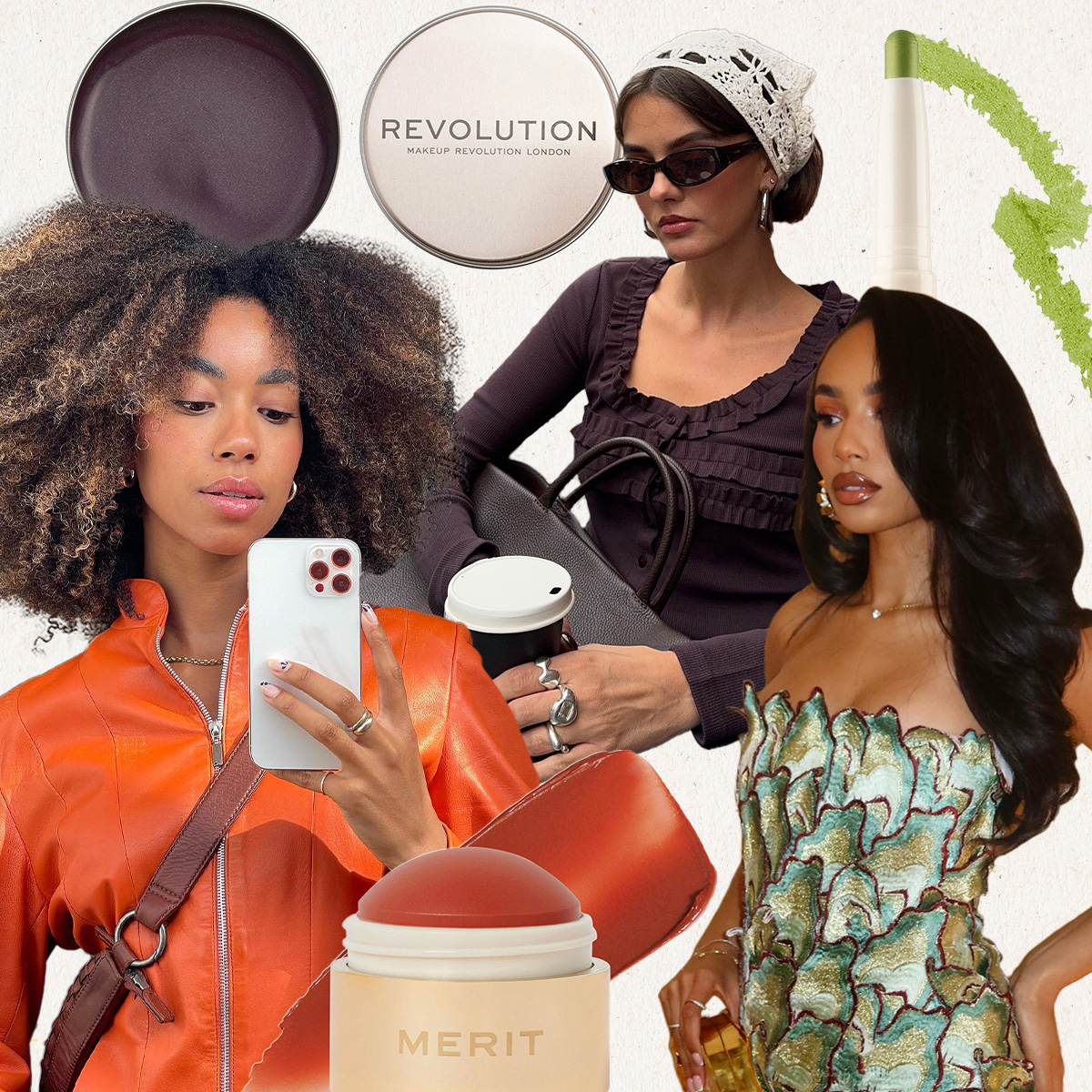 Cloud Dancer Is Fine, But Gen Z Beauty Fans Are Claiming These Much Cooler Color Trends for 2026
Cloud Dancer Is Fine, But Gen Z Beauty Fans Are Claiming These Much Cooler Color Trends for 2026The brighter, the better.
-
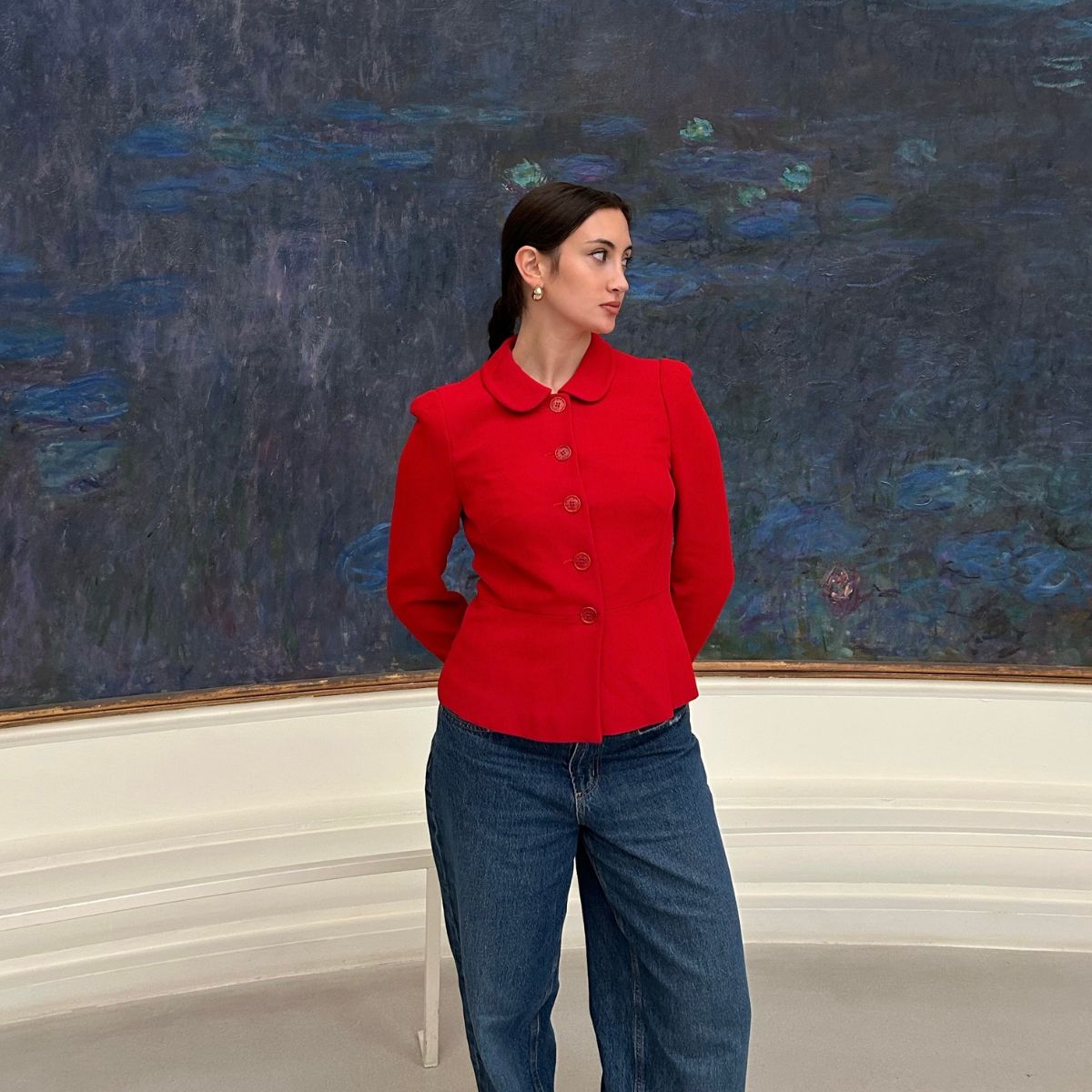 I'm a Beauty Editor With a Fashion Degree—the 25 Items Burning a Hole in My Pocket Right Now
I'm a Beauty Editor With a Fashion Degree—the 25 Items Burning a Hole in My Pocket Right NowMy picks start at just $14.
-
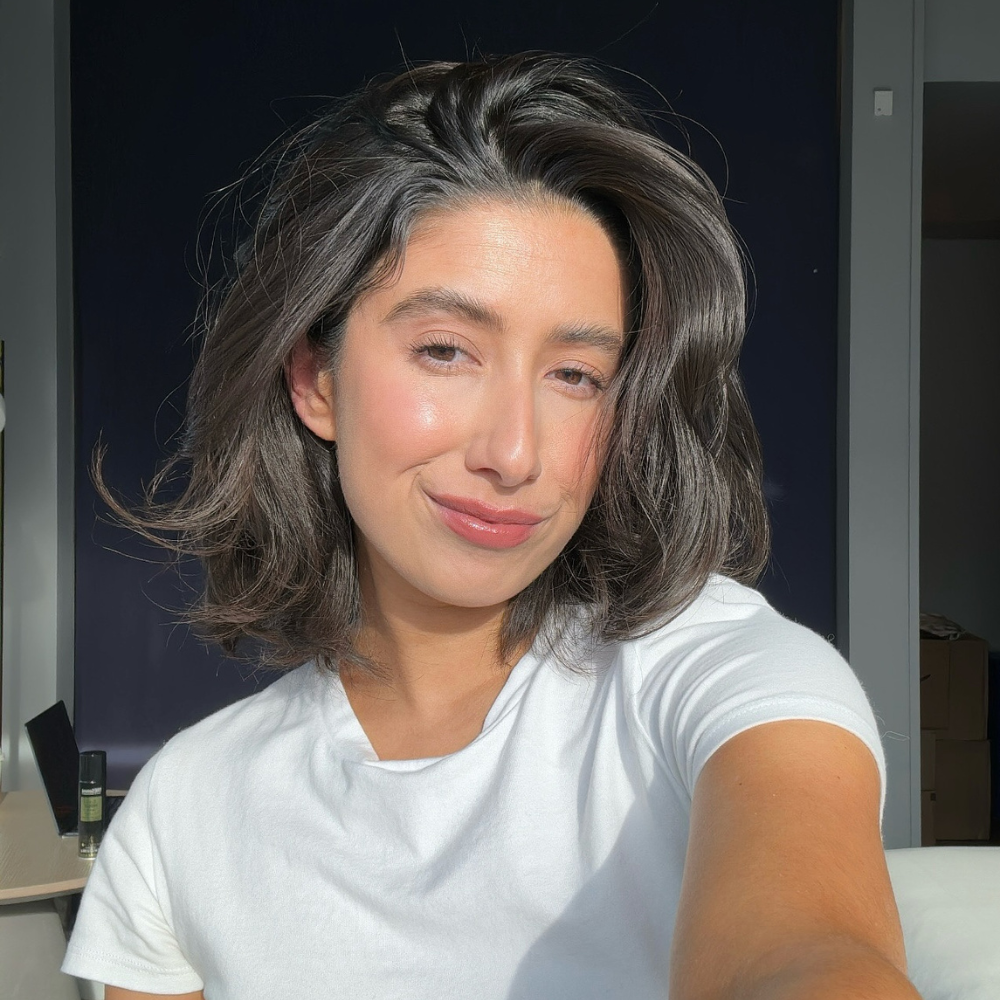 Color-Corrector Primers Counteract My Redness-Prone Skin—10 Top Buys for the Best Results
Color-Corrector Primers Counteract My Redness-Prone Skin—10 Top Buys for the Best ResultsMakeup-artist approved.
-
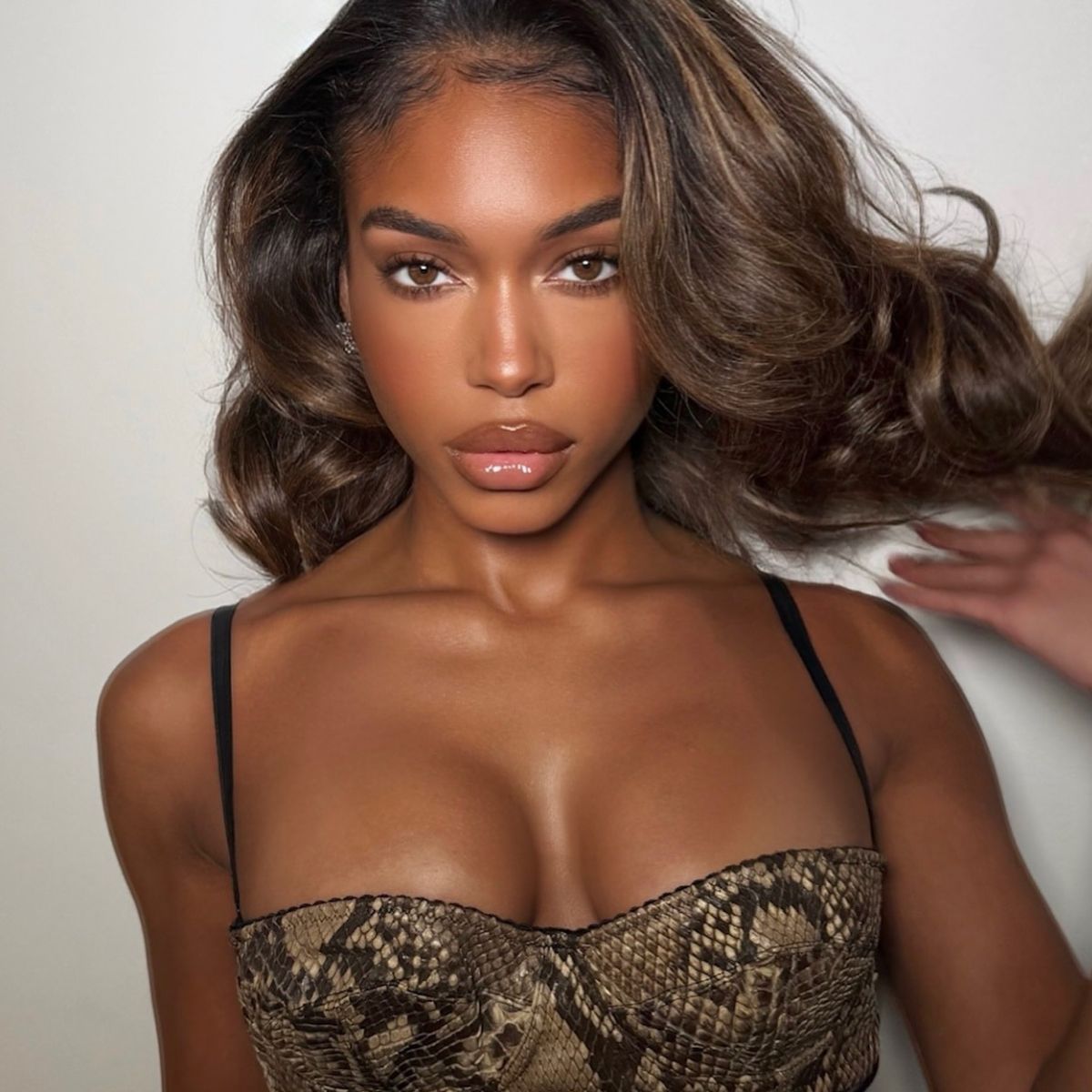 IMO, the Best Date-Night Makeup Whispers Sizzling Romance—10 Looks I'm Itching to Copy
IMO, the Best Date-Night Makeup Whispers Sizzling Romance—10 Looks I'm Itching to CopyScreenshot these for later.
-
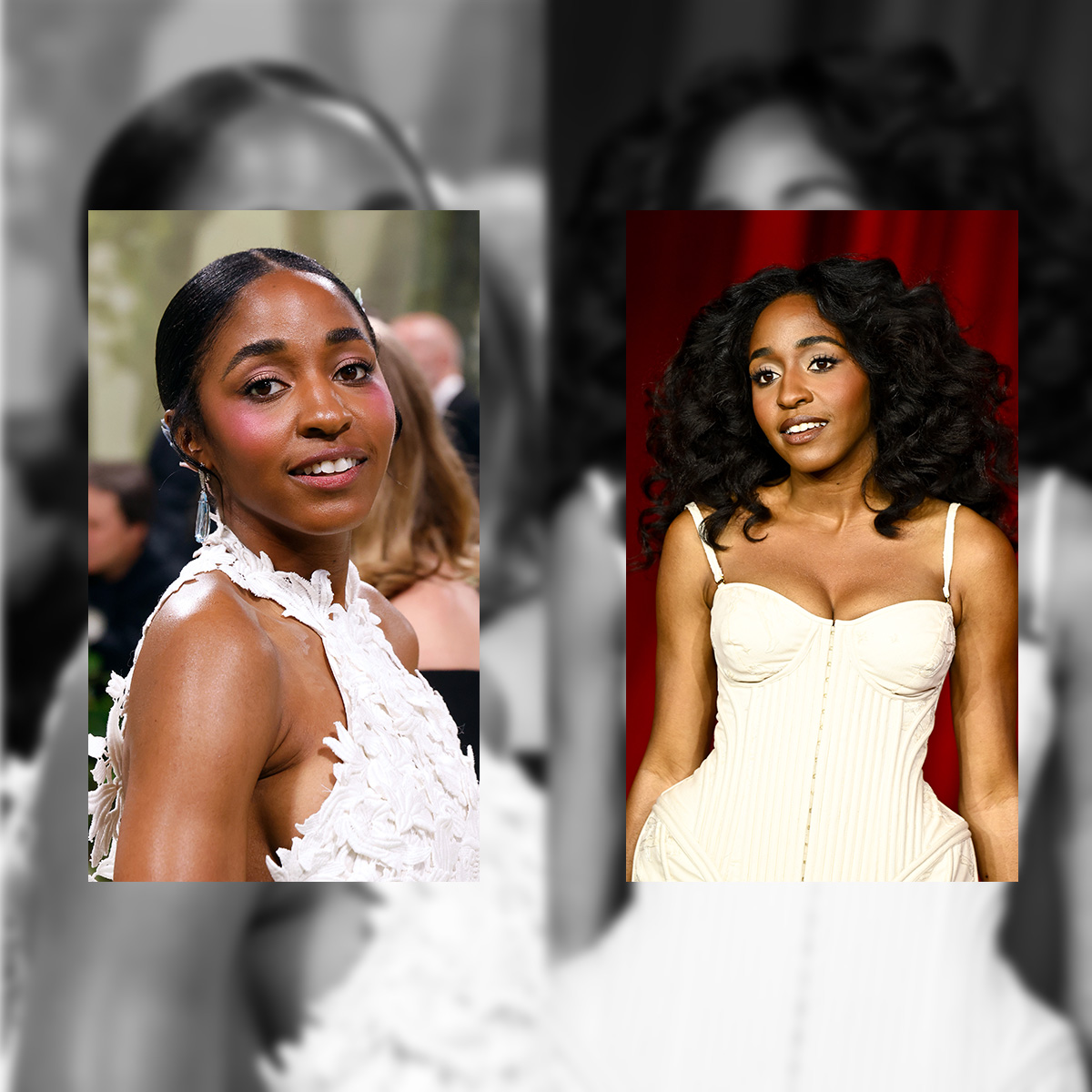 Ayo Edebiri Basically Wrote the Rule Book for Fresh-Faced Makeup—9 Looks on My Inspo Board
Ayo Edebiri Basically Wrote the Rule Book for Fresh-Faced Makeup—9 Looks on My Inspo BoardTake notes.
-
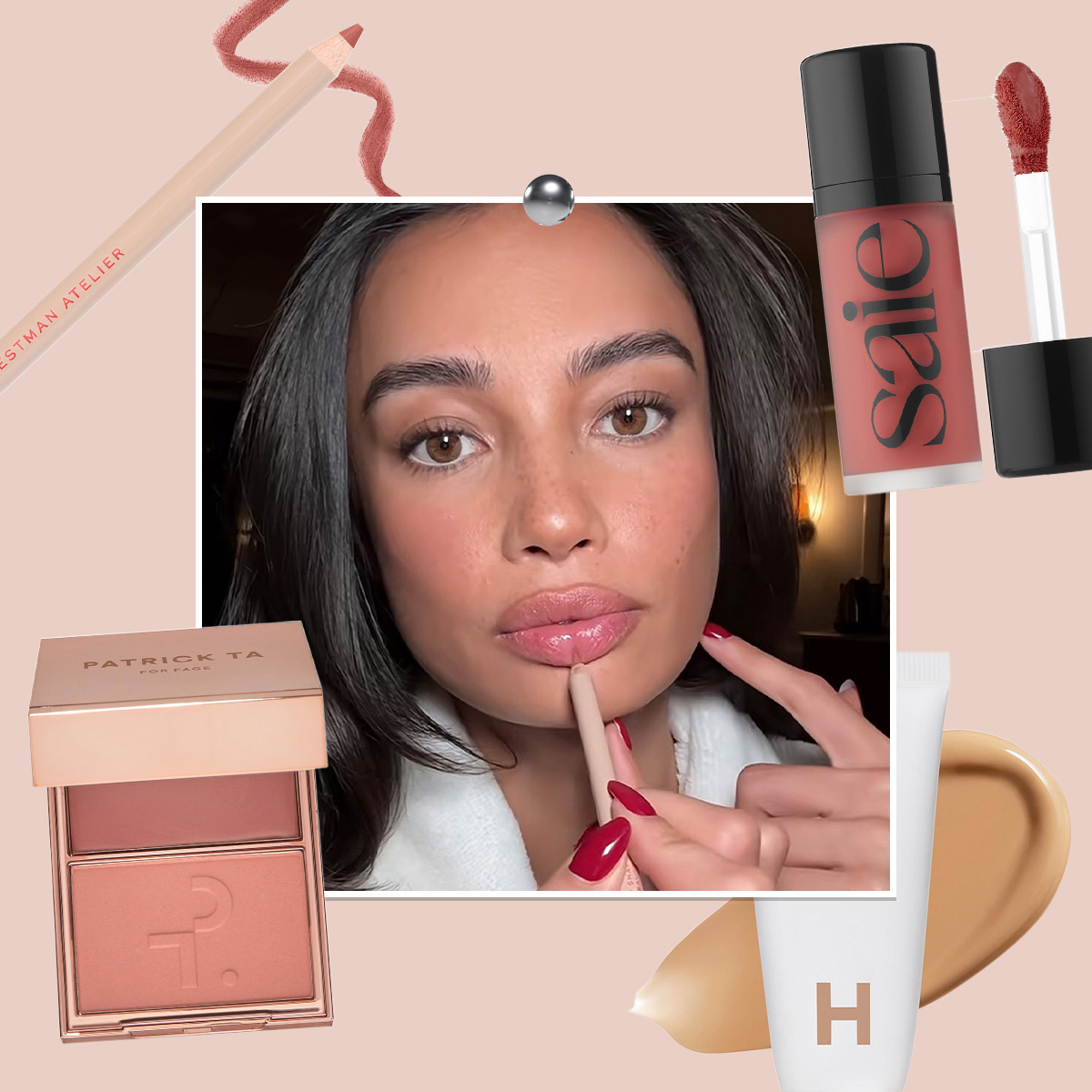 I Finally ID'd the 17 Products Kelsey Merritt Used in Her Frosted Peach Makeup Routine
I Finally ID'd the 17 Products Kelsey Merritt Used in Her Frosted Peach Makeup RoutineIt's easier than you think.
